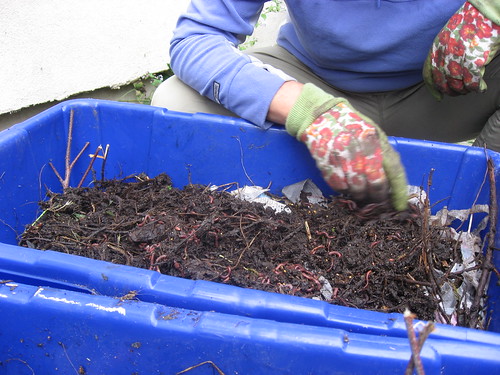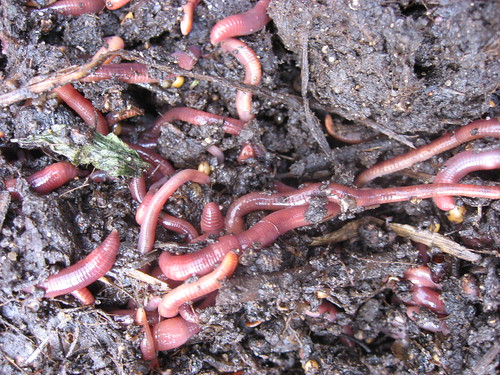A couple of days ago I hosted students who are studying in
the Masters of Design for Sustainability at the Boston Architectural College.
The students are involved in an online program that meets twice a year here in
Boston for a weeklong “intensive,” with classes, fieldwork, and lots of group
projects.
I bring the students to my house in Cambridge for breakfast or lunch and
a walk around our historic, architecturally and socially diverse neighborhood
of Cambridgeport. But after the meal and before the walk we check out Janet’s
“vermiculture station” in the basement.
A few years ago we found heaps of worms in an abandoned,
broken composter and brought them home. Since then they’ve expanded into a
colony of thousands of worms. We feed these babies everything from coffee
filters (with the grinds) to carrot peelings to paper egg cartons. Anything
with a vegetable origin (but no fats, bones, or meats) is like candy to them.
As a biologist I’m super interested in how the worms
function. Basically they are a tube full of bacteria. The worms ingest the
vegetable matter and the bacteria break it down. This way the worms provide the
bacteria with a steady diet and the worms make most of the food available to
their host. The worms wouldn't be able to digest most of what they eat, and they need the bacteria to help them break it down. (We humans are the same. Without our "gut flora" we would be unable to digest most of what we eat. That's why you get an upset stomach when you take antibiotics...they kill the symbiotic "good" bacteria along with the "bad" that cause disease).
When the worms defecate they send lots of bacteria back into the soil. These bacteria break down more of the nutrients in the soil and of course the worms re-ingest them as part of their ongoing diet. It’s a complex ecosystem with many different organisms all doing one thing- breaking down materials we would otherwise toss into the garbage.
Every now and then I pour a liter or so of water into the
system and catch what drips out. It’s called “tea,” it smells like a farm, and
it’s the best thing you can give your house or garden plants (watered down).
Better than any artificially produced fertilizer.
No smell, no noise, no mess, just a colony of wriggly pets
in the basement you can use to impress or alternatively, to gross out your
guests.


No comments:
Post a Comment